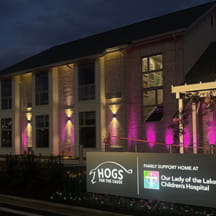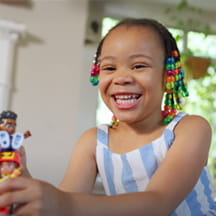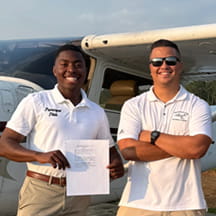Children's Hospital Los Angeles (CHLA) is one of many children's hospitals with academic pediatric fellowships. But CHLA's new fellowship—which accepted its first fellow during the COVID-19 pandemic—has a twist. Its focus is on health equity.
"We wanted to create an academic general pediatric fellowship and distinguish ourselves from the other ones out there," says Kevin Fang, M.D., attending physician and fellowship director for the General Academic Pediatrics Fellowship in Health Equity. "Because of our patient population and what we do well, having a fellowship themed on health equity felt natural."
Health equity is not a new concept but conversations on how to establish more equitable care ramped up in children's hospitals in 2020 because of the pandemic and social justice movements that highlighted inequities.
Health equity builds upon the social determinants of health to remove barriers to positive health outcomes for the underserved—low income, and many racial and ethnic minority families. These challenges include access to care, educational opportunities and socioeconomic barriers.
Getting initial support for the program from hospital leadership was easy. The program was initiated in 2018 by CHLA's recently retired head of the division of general pediatrics Robert Jacobs, M.D., M.P.H., to amp up training opportunities at the hospital.
Fang was tapped to spearhead the program because of his prior fellowship experience in community medicine. His first step was to convene a committee of six to meet once a month over the course of a year to brainstorm ideas on what a fellowship program could look like at CHLA. Together, this group brought fellowship experience in varying focus areas from across the country.
"We didn't want to reinvent the wheel, so we talked about everything we enjoyed from our fellowship experiences to tie a curriculum together," Fang says.
"Then we talked about what differentiates us which is where health equity came in. It's not hard to identify the things we are already doing because of the population we serve. I can point our fellows in any direction and the concept of health equity is going to be there somewhere."
Adjusting during COVID-19
At the start of 2020, things were all set with how the fellowship would work, the administrative details, the budget and there was a resident interested in being the first fellow. Then COVID-19 hit. The pandemic didn't put a stop to the program but any budgets that were promised had to be renegotiated and commitments from leaders remade.
"We just got over the finish line and then had to look logistically, administratively and department-wise to see if it still fit," Fang says. "Jacobs and our designated institutional official, Dr. Rima Jubran, helped navigate who were the best people to talk to and get it across the finish line again. That was the most challenging part."
These changing operations and budgets during the pandemic resulted in the fellowship in having an equal time split between providing clinical care and doing research and educational activities, as compared to other academic fellowships which typically have between 20% and 40% clinical activities.
That's why Fang says it's important to know where the money is coming from and how that can affect how your program is structured. "Be able to leverage your resources," Fang says. "We were lucky that we have a strong relationship with a community partner that saw this fellowship as important so they were able to help fund my time, otherwise it would be difficult to have the administrative support needed for the program."
Weaving in health equity research
Each month Fang and his fellows will focus on a different topic within health equity and give a talk, watch a video or discuss a policy statement on that focus area. Fellows are encouraged to attend other opportunities that fall within their areas of interest.
"We want to create a cool sandbox to play in and fellows can choose their adventure because anything they do here is going to develop their training," Fang says.
A fellow's research project must tie back to health equity but can center on their area of interest. Fang's current and first fellow is interested in curriculum development. She's using the fellowship as an opportunity to build on curriculum for parents with children up to 3 years old. There's an existing version in English and she's going to implement a Spanish version.
"She's addressing language gaps and socioeconomic gaps—that is health equity work," Fang says. "We have one of the highest Medicaid populations for a children's hospital. So where do we weave in health equity? It's in everything we do."


